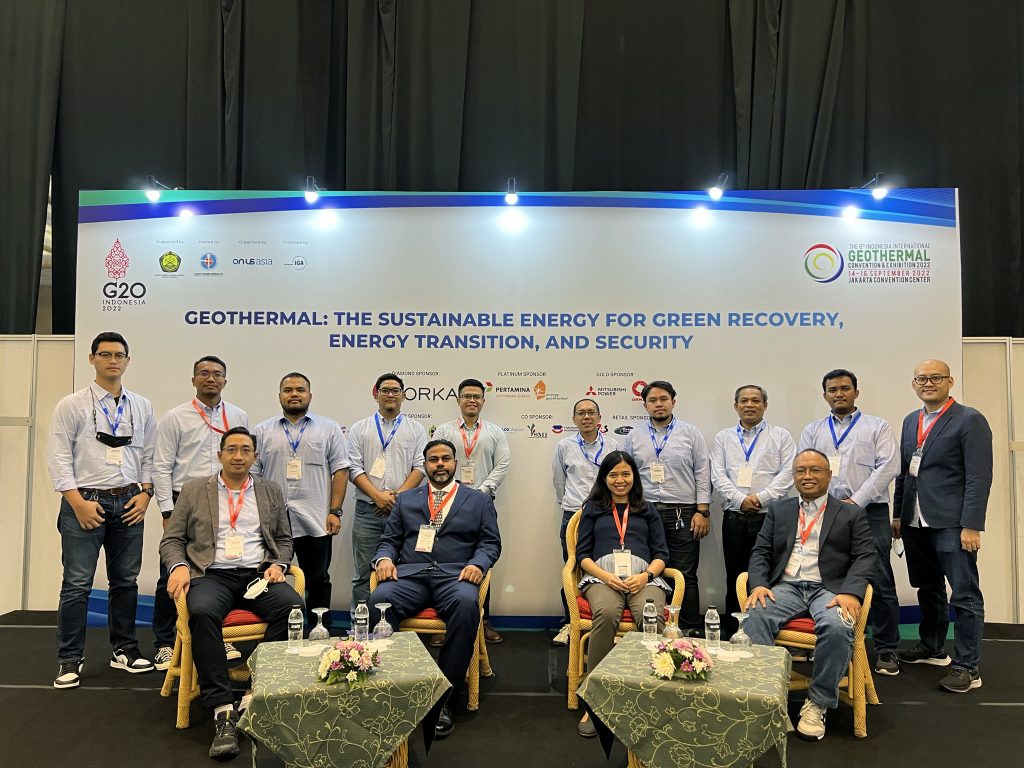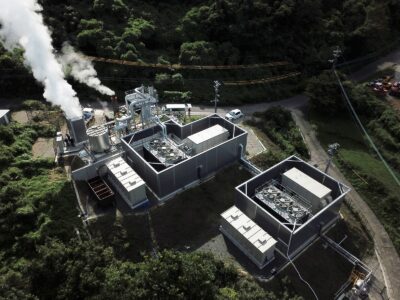Ecolab promotes geothermal plant efficiency technologies on IIGCE
In the recently concluded IIGCE, Ecolab promoted its silica scale inhibition and corrosion protection technologies to promote efficiency in geothermal power plants.
With several decades of experience supporting the geothermal energy industry, Ecolab was honoured to attend the Indonesian Geothermal Association’s (INAGA) 8th Indonesia International Geothermal Convention & Exhibition (IIGCE). The event took place at the Jakarta Convention Center between 14-16 September, under the theme ‘Geothermal: The Sustainable Energy for Green Recovery, Energy Transition and Security.’
Geothermal energy is a key focus for Indonesia, and an important part of its drive to achieve 23% of its energy supply from renewable sources by 2025. Arifin Tasrif, Minister of Energy and Mineral Resources in the Indonesian government, gave the event’s keynote speech and told delegates the total output capacity of the country’s geothermal plants could reach 22 GW.
Nalco Water offers innovations in chemical supply, automation and digital technology for geothermal plants. It has helped the industry to optimize construction costs and reduce operational costs, for example reducing steam consumption from 1.67 tons/MW to 1.59 tons/MW at a typical plant of 85 MW or more, providing savings of up to US$2.4 million per year.
Ecolab used its presence at the show to highlight how its products and services enhance production efficiency in geothermal plants. By reducing the build-up of silica and minimizing corrosion in pipes, Nalco Water optimizes operations and enhances overall plant reliability while simultaneously reducing the consumption of energy and water.
In addition to exhibiting at IIGCE, two leading experts from Nalco Water presented papers on its Silica Scale Inhibitor application. By helping to control silica scale, Nalco Water’s programs optimize system performance for geothermal plants. Its state-of-the-art Silica Scale Inhibitor Program is able to achieve the highest treatable Silica Saturation Index (SSI) application for binary plants on the market, working at up to 2.5 SSI while other solutions are typically below 2.0 SSI.
The first presenter, Muhamad Andhika, Business Development Manager for Geothermal at Nalco Water Heavy Industries, Indonesia, discussed ‘Silica Scale Inhibitor Application at Two-Phase System’. He showed how Nalco Water’s chemical treatment prevents silica deposition with reduced risk of additional difficulties and enhance safety versus pH modification method.
His colleague Nugraha Yohanes Arifpin, Marketing Manager at Nalco Water Heavy Industries, Southeast Asia, presented a case study from Geothermal Field in Sumatra. Under the title ‘Experience in Managing High-Saturation Index Silica Deposition in Brine ORC’, this presentation showed how Nalco Water’s silica and silicate inhibitor program has delivered better results than conventional methods of enhancing a binary plant’s SSI operating limit. By doing this, enabled the plant to extract more energy while helping to reduce the exploration and drilling costs of new production.
In addition to the technology offered in the industry, Chandrasegeran Marimuthu, Vice President for Nalco Water Heavy Industry, Ecolab Southeast Asia, said:
“Nalco Water is proud of its work supporting Indonesia and helping it maintain its position as the world’s second-largest geothermal electricity producer. The country has an ambitious Net Zero Emission plan for 2060, and helping it leverage its vast natural resources to accelerate a clean energy transition while building a resilient, sustainable economy is a rewarding challenge. We are a proven leader in providing solutions to Indonesia’s geothermal industry, helping companies meet their sustainability goals and lower their Levelized Cost of Electricity (LCOE). The Indonesian government is targeting 2100 MW per year in electricity growth for geothermal power, and we aim to support that as much as we can.”
Source: Email correspondence


















